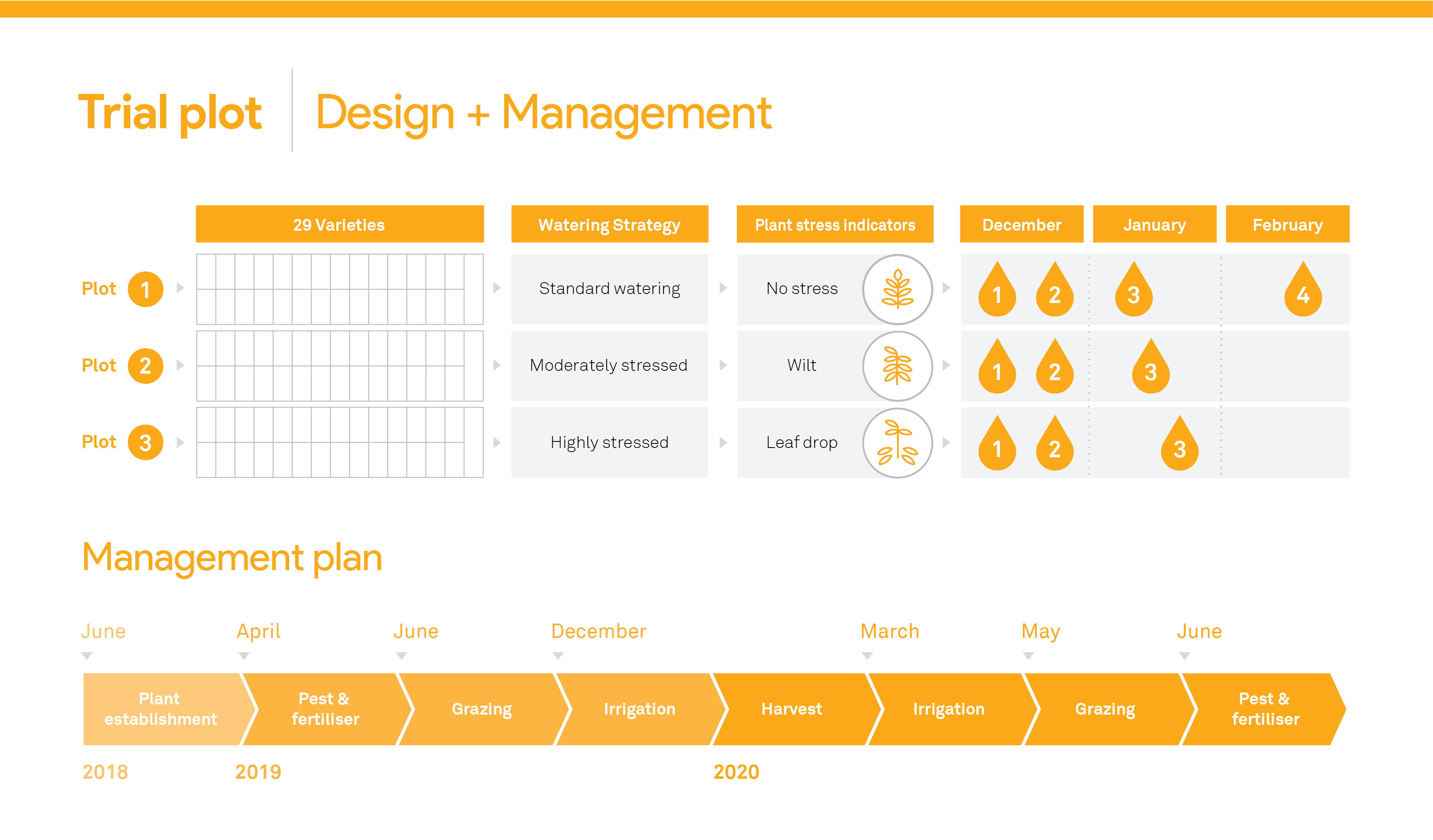Challenging good plant management for harvest success
The trial based in Keith SA, funded by AgriFutures Pasture Seeds Program, shows moisture stressing of lucerne plants provides a significant boost to seed yields by up to 52% when irrigation is delayed.
The 2020 trial managed by Lucerne Australia trial committee follows on from 2019 protocols established to compare standard irrigation schedules with delayed watering.
Under high stress conditions clean lucerne seed yields improved by 14% through to 52% across 29 varieties. With industry benchmark varieties, Aurora and Siriver produced an increase of 16% and 36% in seed yield respectively under high stress watering compared to standard watering management indicating a positive yield response can be achieved for any variety.
“We can stress lucerne a lot more than we have been, and far from being detrimental to seed production, it can actually improve it,” says lucerne seed grower Simon Allen, ‘Warrawee Park’ Keith SA, member of the Lucerne Australia executive and trial committee.
“The trial results have been pretty exciting. It appears data to date challenges ideas around how hard you can stress lucerne plants to maintain forage production and improve seed yield.”
Trialling standard and stressful irrigation management on lucerne
The trial, established June 2018, set out 29 lucerne varieties into three management plots experiencing either a standard irrigation practice, moderate or high moisture stress schedule.

“Standard irrigation practice mirrors industry management for lucerne, including four waterings over summer before signs of water stress were exhibited in the plant”, said Scott Hutchings, Lucerne Australia deputy chair and Cox Rural agronomist, Keith SA.
He added: “The moderately stressed and highly stressed plots were limited to only three waterings, delayed on the third timing depending on the plant’s moisture stress symptoms of leaf wilt or leaf drop.”
“All trial plots had the same management for pests, fertiliser, forage management and harvest over the two years.”
As trial coordinator, Mr Hutchings noted “having more trial data and results will help provide confidence to growers in allowing lucerne plants to stress that little bit longer, knowing it will still improve seed yields plus save irrigation costs.”
Economic analysis from the trial estimates a $723/ha improvement using high stress irrigation strategy by reducing water costs and increasing seed yield.











